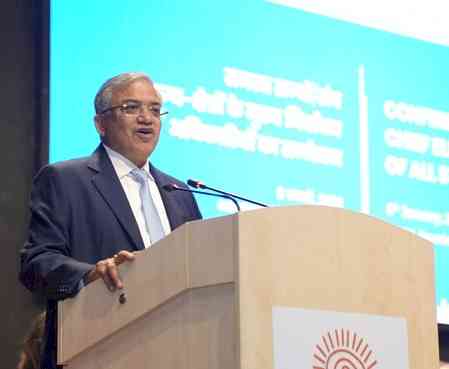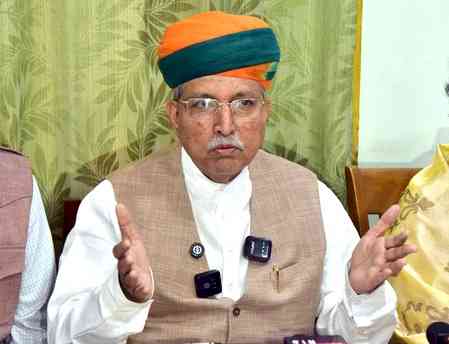Experts advise compliance with medication and precautions for lupus patients during lockdown at IHW Council’s web summit
Lupus cannot be predicted or prevented and hence, the key lies in early diagnosis, getting treated, and continuing follow-up

New Delhi: Taking note of the fact that continuing medication is key to managing lupus, a chronic autoimmune disease, senior rheumatologists and immunologists at the IHW Council’s web summit have advised patients not to stop medines without consulting the doctor and take precautions.
“India has a big burden of lupus which affects about 5 to 250 in every 100,000 population, more on the higher side with some ethnic and geographic variations. It is the most dramatic disease rheumatologists treat due to the rapid improvement in the treatment options: 40 years ago, about 90 percent of people with lupus and an affected kidney died within 5-10 years; now, 90 percent of lupus patients live for more than 40 years. There is no way we can predict or prevent the disease. Hence, the key lies in early diagnosis, getting treated and continuing follow-up as the disease is not curable, affects multiple organs such as kidney, brain, nervous system, blood vessels and may cause infection, even without immunosuppressants treatments,” said Dr. Debasish Danda, Professor & Founder of Clinical Immunology & Rheumatology, CMC Vellore; President-Elect, Asia Pacific League of Associations for Rheumatology (APLAR).
Discussing the various manifestations of the disease and the various organs it affects, Dr Ashish Badika, Director Clinical Immunology & Rheumatology at Arthritis & Rheumatology Center, Indore, said, “Lupus has a varied presentation that includes fever, fatigue, pain, swelling, stiffness in and around multiple joints, skin rashes such as butterfly rashes, hair fall, discoloration of fingers, recurrent oral ulcers. It can also affect multiple systems including neurological (psychological manifestation, seizures, depression, headache, visual problems and even stroke), kidney, blood (including anemia, drop in platelet or WBC), heart, and lung.”
Nearly 9 out of 10 patients of lupus are women – in September 2017, American singer and Hollywood actor Selena Gomez underwent a kidney transplant at the age of 24 due to lupus-induced damage.
“People suffering from lupus should be careful about what they eat – they should avoid too much sweets or fried foods and saturated fats such as ghee. Since these patients are more prone to getting infection due to their treatment and the medicines they take, it is important they take adequate precaution in preparing the food and maintain cleanliness in and around the area where they are preparing food and having food prepared outside. Eat food that is freshly cooked and hygienically prepared,” said Dr Suvrat Arya, Consultant, Department of Rheumatology, Jaypee Hospital, Noida.
The virtual summit on managing lupus during the coronavirus pandemic, organized by the Integrated Health and Wellbeing (IHW) Council, was attended by Dr Suvrat Arya, Consultant, Department of Rheumatology, Jaypee Hospital, Noida, Dr Santosh K Mandal, Consultant, Department of Rheumatology, NH - R.N.Tagore International Institute of Cardiac Sciences, Kolkata, Dr Raheesh Ravindran, Consultant, Department of Rheumatology, Jupiter Hospital (Thane) & Dr L. H. Hiranandani Hospital (Mumbai), and Dr Prasanta Padhan, Consultant, Department of Clinical Immunology and Rheumatology, KIMS, Bhubaneshwar.
IHW Council, a premier think tank that advocates for a healthy world through multilateral stakeholder engagement has been organizing online conferences since the beginning of lockdown in March on various aspects of the pandemic caused by the COVID-19 virus.
Mr. Kamal Narayan, CEO, IHW Council, who moderated the session, said, “Autoimmune diseases like lupus need constant treatment and monitoring, much like other chronic diseases such as diabetes or hypertension. Besides, lifelong treatment means that the patients are at risk of feeling dejected or lackadaisical attitude towards medication and interrupt or discontinue it. As a result, the overall treatment suffers. Currently, when they cannot visit the doctors as and when needed due to the lockdown, it is important to inform the patients of the pitfalls of their mistakes and shortcuts, so that they can continue remaining healthy.”


 cityairnews
cityairnews 










